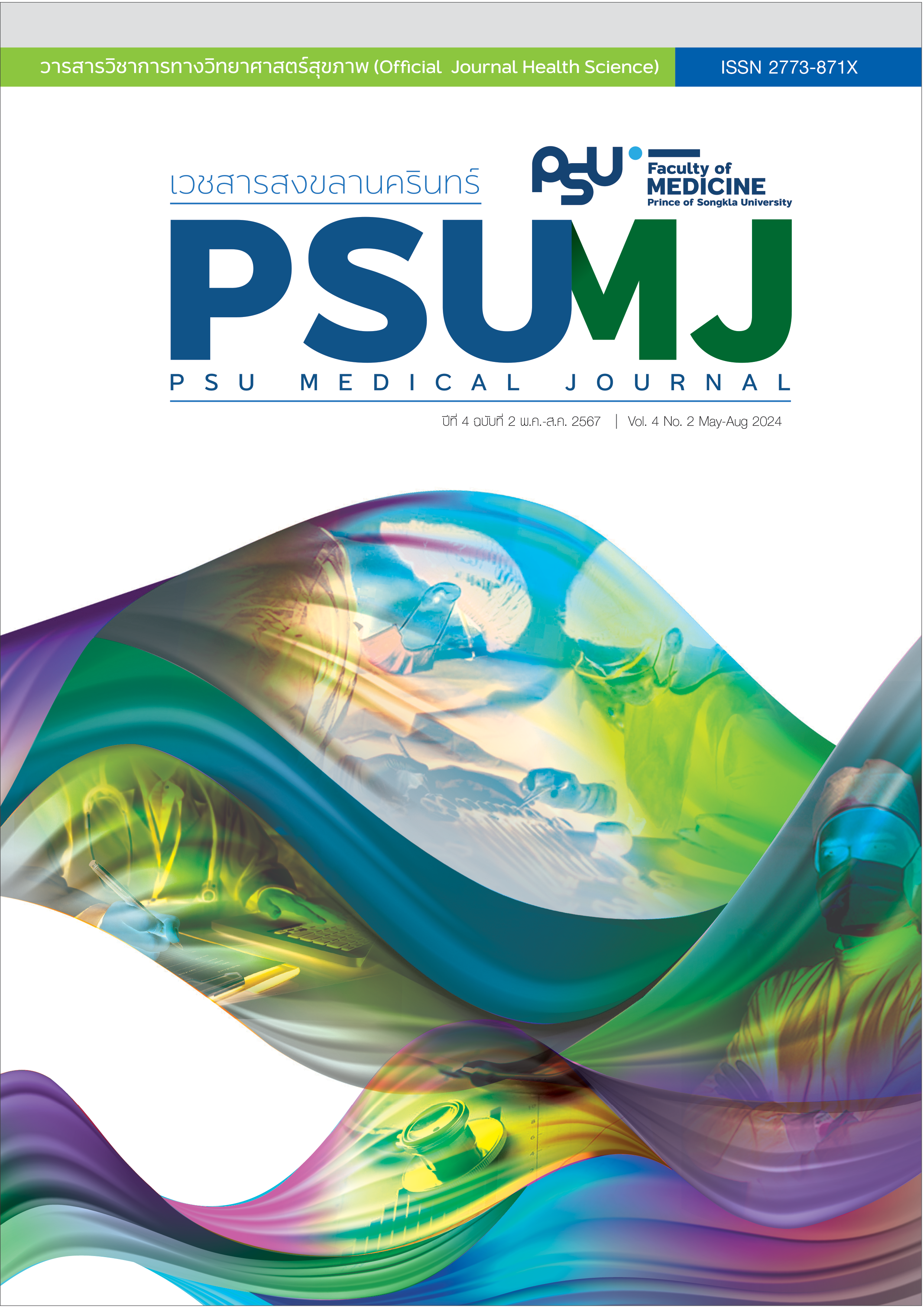Common Adverse Events from Chemotherapy in Ambulatory Gynecologic Cancer Care
DOI:
https://doi.org/10.31584/psumj.2024269902Keywords:
adverse events, ambulatory, chemotherapy, gynecologic cancerAbstract
Chemotherapy alone or as an additive treatment with surgery or radiation is the most common treatment in 70% of gynecologic cancers and the majority of patients in the ambulatory unit. The most common chemotherapy adverse events are divided into those occurring in the hematologic and non-hematologic systems. In the hematologic system, anemia and thrombocytopenia are treated with blood component transfusions, packed red cells and platelets, respectively. Neutropenia, especially febrile neutropenia, is the major cause of severe infection in patients, and may lead to death, Granulocyte colony-stimulating factor is used for primary or secondary prophylaxis depending on the febrile neutropenia risk of chemotherapy and patients’ risk. In the non-hematologic system, nausea, vomiting, fatigue, alopecia, hand-foot syndrome, hypersensitivity and peripheral neuropathy are the main adverse events. Premedication before chemotherapy administration is an effective method for preventing nausea and vomiting and decreased the incidence of hypersensitivity, which can be a life-threatening event, while other symptoms such as fatigue, alopecia, hand-foot syndrome and peripheral neuropathy require only symptomatic treatments.
References
Rojanamatin J, Ukranun W, Supaattagorn P, Chiawiriyabunya I, Wongsena M, Chaiwerawattana A, et al. Cancer in Thailand Vol.X, 2016-2018. Bangkok: National Cancer Institute; 2021.
Chu. CS, Rubin SC. Basic Principles of Chemotherapy. In: Disaia PJ, Creasman WT, Mannel RS, Mcmeekin DS, Mutch DG, editors. Clinical Gynecologic Oncology. 9th ed. Philadelphia: Elsevier; 2018;p.449-69
Konecny. GE, Friedlander ML. Chemotherapy. In: Berek JS, Hacker NF, editors. Berek & Hacker’s Gynecologic Oncology. 7th ed. Philadelphia: Wolters Kluwer; 2021:p.60-84.
Cancer.gov [homepage on the Internet]. Common Terminology Criteria for Adverse Events (CTCAE) Version 5.0. National Cancer Institute: Division of Cancer Treatment & Diagnosis [cited 2024 Mar 1]. Available from: https://ctep.cancer.gov/protocolDevelopment/electronic_applications/ctc.htm
Cancer.gov [homepage on the Internet]. Patient Reported Outcomes version of the Common Terminology Criteria for Adverse Events (PRO-CTCAE). National Cancer institute: Division of Cancer Control & Population Sciences [cited 2024 Mar 1]. Available from: https://healthcaredelivery.cancer.gov/pro-ctcae/
Dunton CJ. Management of treatment-related toxicity in advanced ovarian cancer. Oncologist 2002;7 Suppl 5:11-9.
Webster EM, Burke WM, Ware HM, Jones BA, Vattakalam R, Tergas AI, et al. Patient reported outcomes in evaluation of chemotherapy toxicity in women with gynecologic malignancies: a pilot study. Gynecol Oncol 2018;150:487-93.
Collomb B, Dubromel A, Caffin AG, Herledan C, Larbre V, Baudouin A, et al. Assessment of patient reported outcomes (PROs) in outpatients taking oral anticancer drugs included in the real-life oncoral program. Cancers (Basel) 2022;14.
Saint-Ghislain M, Levenbruck C, Bellesoeur A. Adverse events of targeted therapies approved for women’s cancers. Int J Womens Dermatol 2021;7:552-9.
Randall LM, Monk BJ. Bevacizumab toxicities and their management in ovarian cancer. Gynecol Oncol 2010;117:497-504.
Kayl AE, Meyers CA. Side-effects of chemotherapy and quality of life in ovarian and breast cancer patients. Curr Opin Obstet Gynecol 2006;18:24-8.
Cybulska P, Goss C, Tew WP, Parameswaran R, Sonoda Y. Indications for and complications of transfusion and the management of gynecologic malignancies. Gynecol Oncol 2017;146:416-26.
NCCN.org [homepage on the Internet]. NCCN Clinical Practice Guideline in Oncology (NCCN Guidelines): Hematopoietic Growth Factors. National Comprehensive Cancer Network [cited 2024 Mar 1]. Available from: https://www.nccn.org/guidelines/category_3
Lyman GH, Lyman CH, Agboola O. Risk models for predicting chemotherapy-induced neutropenia. Oncologist 2005;10:427-37.
Lyman GH, Michels SL, Reynolds MW, Barron R, Tomic KS, Yu J. Risk of mortality in patients with cancer who experience febrile neutropenia. Cancer 2010;116:5555-63.
Yoo J, Jung Y, Ahn JH, Choi YJ, Lee KH, Hur S. Incidence and clinical course of septic shock in neutropenic patients during chemotherapy for gynecological cancers. J Gynecol Oncol 2020;31:e62.
Culakova E, Thota R, Poniewierski MS, Kuderer NM, Wogu AF, Dale DC, et al. Patterns of chemotherapy-associated toxicity and supportive care in US oncology practice: a nationwide prospective cohort study. Cancer medicine 2014;3:434-4.
Aapro MS, Bohlius J, Cameron DA, Dal Lago L, Donnelly JP, Kearney N, et al. 2010 update of EORTC guidelines for the use of granulocyte-colony stimulating factor to reduce the incidence of chemotherapy-induced febrile neutropenia in adult patients with lymphoproliferative disorders and solid tumours. Eur J Cancer. 2011;47:8-32.
Smith TJ, Bohlke K, Lyman GH, Carson KR, Crawford J, Cross SJ, et al. Recommendations for the use of WBC growth factors: american society of clinical oncology clinical practice guideline update. J Clin Oncol 2015;33:3199-212.
NCCN.org [homepage on the Internet]. NCCN Clinical Practice Guideline in Oncology (NCCN Guidelines): Prevention and Treatment of Cancer-Related Infections. National Comprehensive Cancer Network [cited 2024 Mar 1]. Available from: https://www.nccn.org/guidelines/category_3
NCCN.org [homepage on the Internet]. NCCN Clinical Practice Guideline in Oncology (NCCN Guidelines): Antiemesis. National Comprehensive Cancer Network [cited 2024 Mar 1]. Available from: https://www.nccn.org/guidelines/category_3
Salzmann M, Marmé F, Hassel JC. Prophylaxis and Management of Skin Toxicities. Breast care (Basel, Switzerland) 2019;14:72-7.
Thangwonglers T, Santimaleeworagun W, Therasakvichya S, Saengsukkasemsak N, Pimsi P. Characteristics of immediate hypersensitivity reaction to paclitaxel-based chemotherapy in gynecologic cancer patients. Asian Pac J Allergy Immunol 2023;41:340-6.
Van Gerpen R. Chemotherapy and biotherapy-induced hypersensitivity reactions. J Infus Nurs 2009;32:157-65.
NCCN.org [homepage on the Internet]. NCCN Clinical Practice Guideline in Oncology (NCCN Guidelines): Ovarian Cancer Including Fallopian Tube Cancer and Primary Peritoneal Cancer. National Comprehensive Cancer Network [cited 2024 Mar 1]. Available from: https://www.nccn.org/guidelines/category_1
Bulls HW, Hoogland AI, Kennedy B, James BW, Arboleda BL, Apte S, et al. A longitudinal examination of associations between age and chemotherapy-induced peripheral neuropathy in patients with gynecologic cancer. Gynecol Oncol 2019;152:310-5.
Loprinzi CL, Lacchetti C, Bleeker J, Cavaletti G, Chauhan C, Hertz DL, et al. Prevention and management of chemotherapy-induced peripheral neuropathy in survivors of adult cancers: ASCO guideline update. J Clin Oncol 2020;38:3325-48.
Downloads
Published
How to Cite
Issue
Section
License
Copyright (c) 2024 Author and Journal

This work is licensed under a Creative Commons Attribution-NonCommercial-NoDerivatives 4.0 International License.








